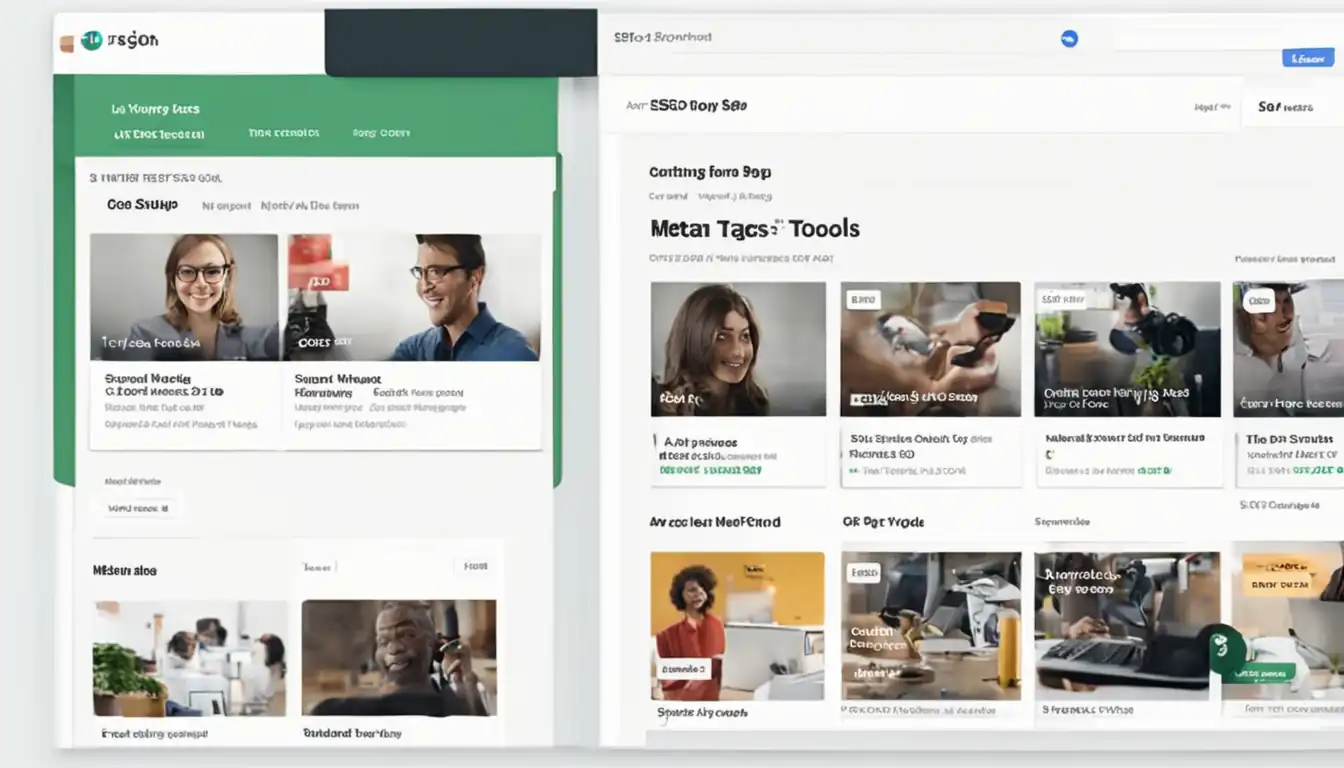Startup SEO: Navigating the Essentials for Emerging Businesses

Are you an emerging business looking to make your mark in the digital world? Then you've come to the right place! In this post, we'll be diving into the essentials of startup SEO, covering everything from understanding the fundamentals to scaling your efforts as your business grows. Let's get started on the path to SEO success!
Setting the Stage for SEO Success
When it comes to setting the stage for SEO success, it's crucial to first understand the fundamentals of SEO. This includes knowing how search engines work, the importance of keywords, and the role of quality content. Without a solid understanding of these fundamentals, it's difficult to create an effective SEO strategy.
Once you have a grasp of the basics, the next step is to align your SEO efforts with your startup's vision. This means understanding your target audience, the unique value proposition of your product or service, and the specific goals you want to achieve through SEO. By aligning your SEO strategy with your startup's vision, you can ensure that your efforts are focused and effective.
When it comes to building a strong foundation for your website's SEO, there are a few key factors to consider. One of the first steps in this process is choosing the right domain name. Your domain name should be relevant to your business or industry, easy to remember, and preferably include a keyword related to your niche. This will not only make it easier for users to find and remember your website, but it can also have a positive impact on your search engine rankings.
In addition to choosing the right domain name, it's crucial to ensure that your website is mobile-friendly. With the majority of internet users now browsing on mobile devices, having a responsive and mobile-friendly website is essential for both user experience and SEO. Google also prioritizes mobile-friendly websites in its search results, so this is a critical aspect of building a solid SEO foundation for your site.
By paying attention to these key elements, you can lay the groundwork for a successful SEO strategy and set your website up for long-term success.
Keyword Research: The Heartbeat of SEO
Keyword research is the foundation of any successful SEO strategy. It involves identifying the specific words and phrases that your target audience is using when searching for information related to your business or industry. By understanding the language of your audience, you can tailor your content to meet their needs and improve your chances of ranking higher in search engine results pages.
Unearthing Keywords That Resonate with Your Audience
To unearth keywords that resonate with your audience, you need to put yourself in their shoes. What words or phrases would they use to find the products or services you offer? Start by brainstorming a list of potential keywords and then use tools like Google Keyword Planner, SEMrush, or Ahrefs to expand your list and identify the search volume and competition for each keyword.
Tools and Techniques for Effective Keyword Research
There are various tools and techniques available to help you conduct effective keyword research. These tools not only provide insight into search volume and competition but also offer suggestions for related keywords and long-tail variations. Additionally, techniques such as competitor analysis and customer surveys can provide valuable insights into the language and terminology used by your target audience.
When it comes to keyword research, it's important to remember that it's an ongoing process. As search trends and consumer behavior evolve, so too should your keyword strategy. By staying on top of keyword research and continuously optimizing your content, you can ensure that your website remains relevant and visible to your target audience.
On-Page SEO: Optimizing for Victory

The Art of Crafting Title Tags and Meta Descriptions
Crafting compelling and relevant title tags and meta descriptions is a crucial aspect of on-page SEO. These elements not only impact search engine rankings but also play a significant role in attracting clicks from search engine results pages. When creating title tags, it's essential to include relevant keywords and provide a clear and concise description of the page's content. Similarly, meta descriptions should be persuasive and informative, enticing users to click through to the website. By optimizing these elements, you can improve the visibility and click-through rate of your web pages, ultimately contributing to the overall success of your SEO efforts.
Harnessing the Power of Header Tags and Content Hierarchy
Header tags, such as H1, H2, and H3, are not only essential for organizing and structuring your content but also play a vital role in on-page SEO. Utilizing header tags effectively can help search engines understand the hierarchy and context of your content, leading to improved rankings and visibility. By incorporating relevant keywords into your header tags and structuring your content in a logical and hierarchical manner, you can enhance the overall user experience and make it easier for both search engines and users to navigate and understand your content. Additionally, implementing a clear content hierarchy can contribute to better indexing and ranking of your web pages, ultimately leading to increased organic traffic and improved SEO performance.
Technical SEO: Behind-the-Scenes Tweaks
When it comes to optimizing your website for search engines, technical SEO is a crucial aspect that often gets overlooked. While content and keywords are important, the behind-the-scenes tweaks can make a significant impact on your site's performance in search results.
Site Speed: Why It Matters and How to Improve It
One of the key factors in technical SEO is site speed. Google has indicated that site speed is one of the signals used by its algorithm to rank pages. A slow-loading website not only provides a poor user experience but also affects your search engine rankings.
Improving site speed can be achieved through various methods, such as optimizing images, leveraging browser caching, and minimizing server response time. Tools like Google's PageSpeed Insights and GTmetrix can help identify areas for improvement.
Ensuring Crawlability and Indexability
Another important aspect of technical SEO is ensuring that search engine crawlers can easily access and index your website's content. This involves optimizing your robots.txt file, utilizing sitemaps, and addressing any crawl errors reported in Google Search Console.
By addressing these behind-the-scenes tweaks, you can improve your website's technical SEO, leading to better search engine visibility and ultimately, more organic traffic.
Content is King: Creating Value for Your Audience
In the world of digital marketing, content is king. Creating valuable and engaging content is essential for attracting and retaining an audience. Whether you are a startup or an established business, focusing on content-driven SEO can give you a competitive edge in the online landscape.
Blogging: A Startup's Secret Weapon
Blogging is a powerful tool for startups to establish their brand, connect with their audience, and drive traffic to their website. By consistently publishing high-quality and relevant blog posts, startups can position themselves as industry leaders and experts in their field. Blogging also provides an opportunity to incorporate keywords and phrases that can improve search engine rankings, ultimately increasing visibility and attracting potential customers.
Multimedia Content: Engaging Users Beyond Text
In addition to written content, incorporating multimedia elements such as videos, infographics, and podcasts can further engage users and enhance the overall user experience. Multimedia content allows startups to convey information in a more visually appealing and interactive manner, catering to different learning styles and preferences. By diversifying content formats, startups can reach a wider audience and keep them engaged with their brand.
Remember, the key to successful content-driven SEO is to prioritize the creation of valuable and relevant content that resonates with your audience. By focusing on blogging and incorporating multimedia elements, startups can effectively leverage content as a secret weapon to drive traffic, build brand authority, and ultimately, achieve business success.
Off-Page SEO: Building Authority and Trust
When it comes to off-page SEO, building authority and trust is essential for improving your website's search engine rankings. One of the key factors in achieving this is through the acquisition of quality backlinks.
The Role of Backlinks in SEO
Backlinks, also known as inbound links, are links from other websites that direct users to your site. Search engines view backlinks as a vote of confidence in your content, and the more high-quality backlinks you have, the more authoritative and trustworthy your website appears.
Strategies for Acquiring Quality Backlinks
Create High-Quality Content: Producing valuable and relevant content is one of the most effective ways to attract natural backlinks. When your content is informative and engaging, other websites are more likely to link back to it.
Guest Blogging: Writing guest posts for reputable websites in your industry can help you earn backlinks while also establishing your authority and expertise.
Broken Link Building: Identify broken links on other websites and offer your own content as a replacement, providing an opportunity to gain new backlinks.
Influencer Outreach: Collaborating with influencers and industry leaders can lead to backlinks from their websites and social media platforms, boosting your website's credibility.
Participate in Online Communities: Engaging in discussions on forums, Q&A sites, and social media platforms can help you build relationships and earn backlinks from relevant sources.
By implementing these strategies, you can effectively build authority and trust through off-page SEO, ultimately improving your website's search engine rankings.
Local SEO: Making Your Mark in the Neighborhood

Local SEO is a crucial aspect of any business's online presence. By optimizing for local search, you can ensure that your business is visible to potential customers in your area. This means focusing on keywords that are relevant to your location, as well as creating content that is tailored to the needs and interests of local customers.
One of the most effective ways to improve your local SEO is by leveraging local listings and reviews. This means claiming and optimizing your Google My Business listing, as well as creating profiles on other local directories such as Yelp and TripAdvisor. Encouraging satisfied customers to leave positive reviews can also have a significant impact on your local search rankings.
In conclusion, local SEO is essential for businesses that want to make their mark in the neighborhood. By optimizing for local search and leveraging local listings and reviews, you can ensure that your business is visible to potential customers in your area.
SEO Analytics: Measuring Your Success
When it comes to measuring the success of your SEO efforts, Google Analytics is an invaluable tool. Setting it up and utilizing it effectively is crucial for understanding the impact of your SEO strategies.
Setting Up and Utilizing Google Analytics
To get started, you'll need to create a Google Analytics account and add the tracking code to your website. Once set up, you can track a wide range of metrics, including website traffic, user behavior, and conversions. Utilize features such as goal tracking and event tracking to gain deeper insights into user interactions and conversions.
Key Metrics to Track and Interpret
When analyzing your SEO performance, there are several key metrics to track and interpret:
Organic Traffic: This metric shows the number of visitors who found your website through organic search results. An increase in organic traffic indicates that your SEO efforts are driving more visitors to your site.
Keyword Rankings: Monitor the rankings of your target keywords to gauge the effectiveness of your SEO strategies. Identify which keywords are driving the most traffic and conversions.
Bounce Rate: A high bounce rate may indicate that visitors are not finding what they are looking for on your site. Analyze the pages with high bounce rates to identify areas for improvement.
Conversion Rate: Track the percentage of visitors who complete a desired action, such as making a purchase or filling out a contact form. This metric is crucial for measuring the effectiveness of your SEO in driving conversions.
By regularly tracking and interpreting these key metrics, you can gain valuable insights into the success of your SEO efforts and make data-driven decisions to improve your website's performance.
When it comes to SEO, it's important to find the right balance when optimizing your content. Over-optimization, or keyword stuffing, can actually harm your website's ranking rather than improve it. It's crucial to use keywords strategically and naturally within your content, rather than forcing them in where they don't belong. Remember, the goal is to create valuable, high-quality content for your audience, not just to please search engines.
In addition, SEO best practices are constantly evolving as search engine algorithms are updated. It's essential to stay updated with the latest SEO trends and best practices to ensure that your content remains optimized for search engines. This may involve regularly reading industry blogs, attending webinars, or even investing in SEO training to stay ahead of the curve. By staying informed, you can avoid falling behind and potentially harming your website's ranking.
Scaling Your SEO Efforts as Your Startup Grows

As your startup grows, it's important to consider how to scale your SEO efforts effectively. This means not only increasing the quantity of your SEO tasks, but also maintaining the quality and sustainability of your efforts. One key aspect of scaling your SEO is knowing when to consider outsourcing certain tasks, as well as how to keep your SEO efforts scalable and sustainable in the long term. Let's take a closer look at these two important considerations.
Final Thoughts: Maintaining SEO Momentum
Continual Learning and Adaptation in SEO
In the ever-evolving world of SEO, it's crucial to stay up-to-date with the latest trends and best practices. This means continually learning and adapting to the changes in search engine algorithms and user behavior. By staying informed and being willing to adjust your strategies, you can maintain your SEO momentum and stay ahead of the competition.
Building a Community Around Your Brand
One of the most effective ways to maintain SEO momentum is by building a community around your brand. This involves creating valuable and engaging content that resonates with your target audience, as well as actively participating in online conversations and discussions. By fostering a sense of community and loyalty, you can increase brand visibility and attract more organic traffic to your site.
Conclusion
As you navigate the world of startup SEO, remember that continual learning and adaptation are key. By building a community around your brand and staying updated with SEO best practices, you can maintain the momentum of your SEO efforts and keep your business on the path to success. Good luck!